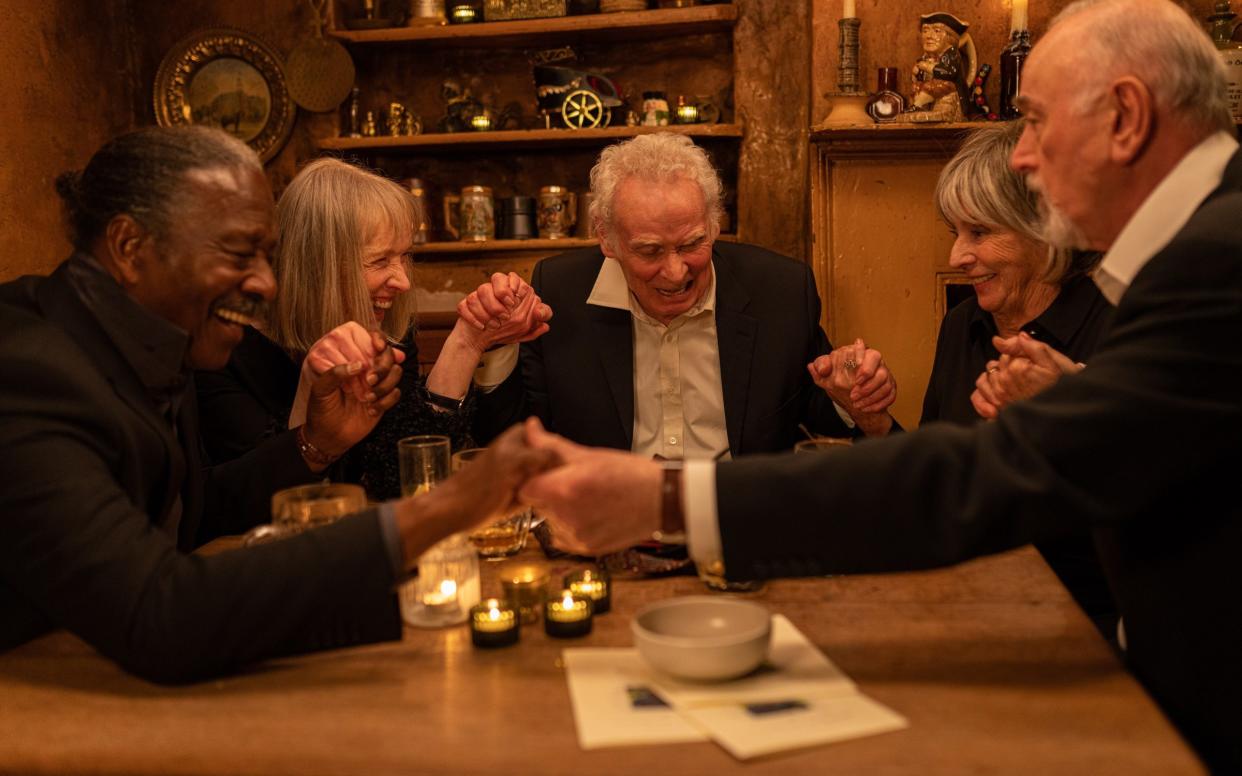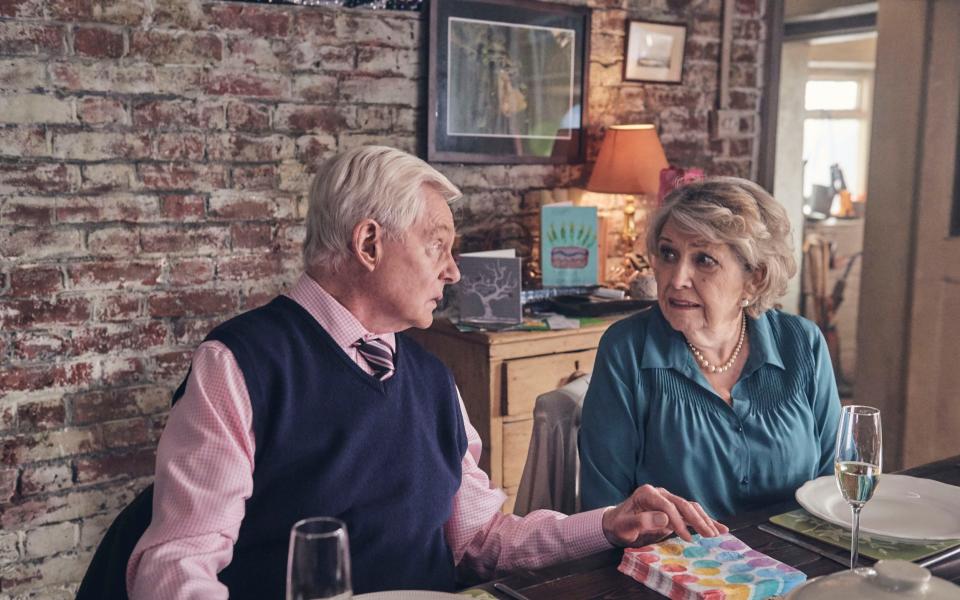Senior citizens have the best stories – but TV drama all too often ignores them

- Oops!Something went wrong.Please try again later.
- Oops!Something went wrong.Please try again later.
Next week, a new drama called Truelove starts on Channel 4. It tells the story of a group of friends who, following a wake, make a vow to “assist” each other’s deaths rather than accept the humiliation of a slow decline. If this sounds grim, it’s not. These 70-somethings are fun-loving, raucous, rude and very real – and skilfully portrayed by a fine cast of actors (Lindsay Duncan, Clarke Peters, Sue Johnston, Karl Johnson and Peter Egan). Yet the depressing fact is that a series like Truelove is rare, because TV drama tends to either ignore or sideline older characters.
Of course, we know that the media are obsessed with the cult of youth, and you sometimes get a sense that TV commissioners are anxious about remaining relevant and drawing in younger audiences. This is a fool’s errand, not least because it assumes that young people only want to watch shows about other young people (not true), but also fails to serve a loyal section of their audience who have emotions, opinions and adventures. Unsexy, undynamic, unsellable? Of course not – yet if an alien were to land on Earth and watch wall-to-wall TV drama for 48 hours they would think our senior citizens were a pretty cranky lot – housebound or complaining or just plain eccentric (in fact, Johnston, one of the stars of Truelove has pointed this out in recent interviews).
The irony is that drama-makers think they are being forward-thinking when they greenlight some flashy tale of hip young things solving crimes within the space-time continuum, but their attitudes to the old are horribly out of date. Until about 50 years ago, the aged were made to feel old – left out of permissive Britain, their contribution to society often unwelcome. But things have changed. The Baby Boomer generation, the one that has above all set the agenda in Britain for many decades, is more vocal in what it wants out of later life and – shock horror! – what it wants is not so different to everyone else.
There is also the fact that older people are more interesting than the young. As a journalist, I always prefer interviewing some seasoned thesp with bags of anecdotes and the long view, as opposed to some callow rising star who is too anxious to speak in case they are cancelled – every facet of their lives seemingly controlled by their personal publicists.
When a septuagenarian is given the recognition they deserve in a TV drama, I often find the performance expansive, illuminating and surprising. I’m thinking of Judi Dench and Eileen Atkins in Cranford, Albert Finney (as Churchill) in The Gathering Storm, Jim Broadbent as Lord Longford.

In recent years, Sally Wainwright’s Last Tango in Halifax was thought to be a corrective in terms of putting older people centre stage. It’s true that the first series – which focused on a rekindled relationship between two pensioners Alan and Celia (played by Derek Jacobi and Anne Reid) more than half a century after they first met – was poignant and very funny. Yet subsequent seasons were disappointing as the couple were relegated to more secondary roles and their troublesome offspring – Nicola Walker and Sarah Lancashire – brought to the fore. Both of the latter are superb actresses, of course, but you couldn’t help feeling that the show’s pioneering spirit had been lost.
Did the makers of Last Tango in Halifax feel they had run out of storylines for Alan and Celia? Certainly, the idea of older people dating is becoming a bit of a cliche in itself (see Netflix’s comedy Grace and Frankie starring Jane Fonda and Lily Tomlin), but it’s a bit depressing to think that such characters were felt to have a short shelf life.
The funny thing is that in comedy, the old are far more present. While recent efforts such as Hold the Sunset have failed, there is an honourable list that includes The Golden Girls and One Foot in the Grave. One of the BBC’s most successful sitcoms was Last of the Summer Wine which ran for 37 years – between 1973 and 2010 – and focused on an ever-changing lineup of retirees creating mischief in West Yorkshire.
Critics of the show have often derided it as innocuous knockabout fun involving predictable capers with so-called hilarious consequences – yet Roy Clarke’s scripts often drifted into surprisingly philosophical territory (actually, would a title as beautifully gnomic as Last of the Summer Wine ever get commissioned today?) and an episode from 2000 in which Compo, Clegg and Truly visited the graves of their former Second World War comrades in France is hailed by some as a masterpiece.
Last of the Summer Wine proves that the lives of the elderly are rich and vivid enough to sustain nearly four decades of material – and its ratings proved that there was an appetite for it. The grey pound is one thing, but there were plenty of younger people who loved the show, too. The ideal would be for a character’s age not to be the punchline, be it in comedy or drama, but that feels like a long way off.
My concerns come at a critical time for TV writing in this country. Earlier this week, the writer and actress Meera Syal complained of an industry that is unwilling to take risks with executives using the word “remit” which she suspects might be a euphemism for algorithm. It’s a depressing prospect that what we are watching might be the result of an analytic data report, but it’s probably true. 2023 was the weakest year of TV drama for many years, with fewer original ideas and a paucity of innovation or emotional intelligence. If things are to improve, a good start would be for drama executives to admit they have an ageism problem – after all, the shock of the old is quite something to behold.

